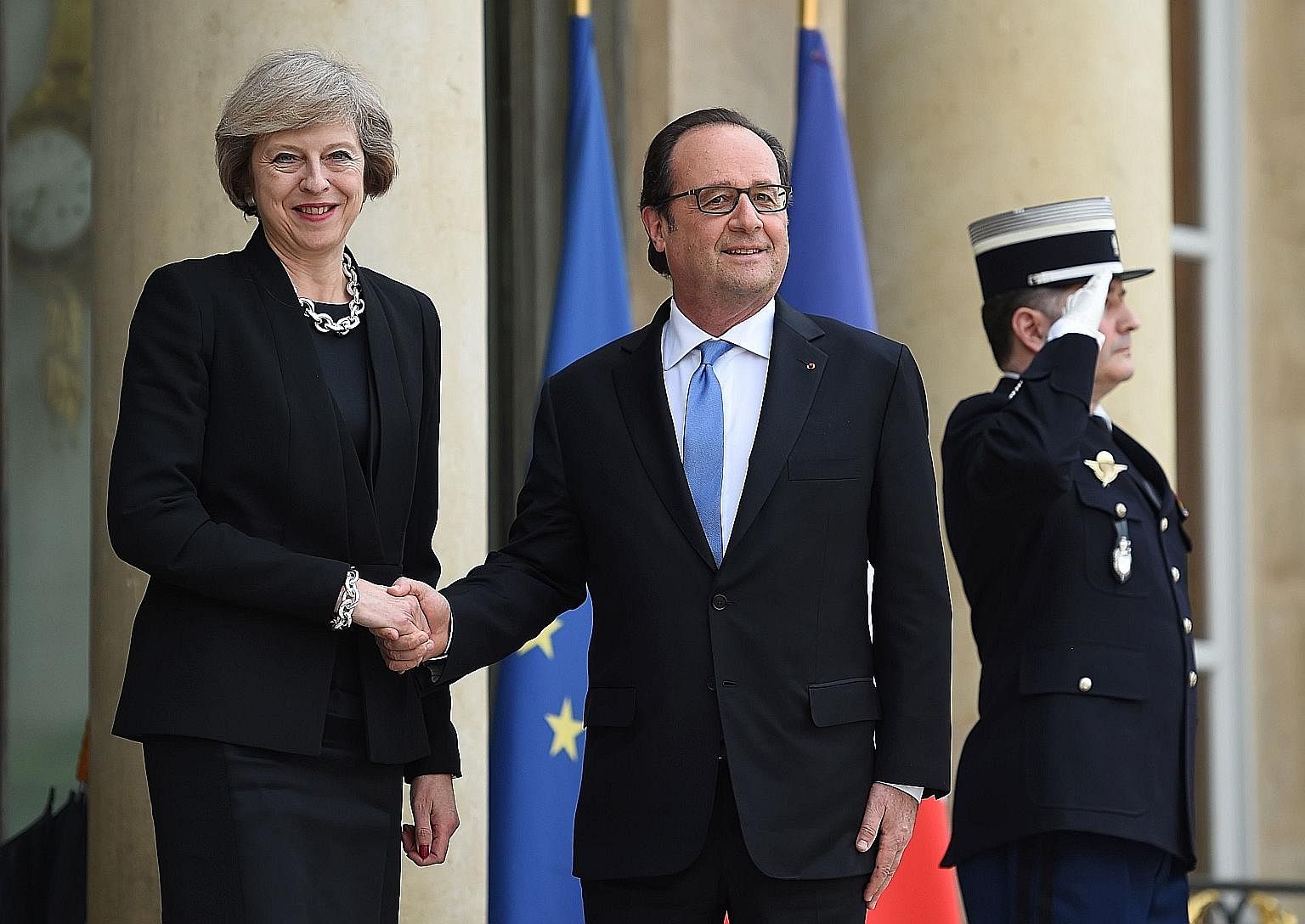Jonathan Eyal British Prime Minister Theresa May's first foreign trip since assuming office appears to have had the desired effect: During brief visits to France and Germany this week, she won the backing of her chief European colleagues for the argument that Britain needs time to prepare for its departure from the European Union.
Still, the respite which Mrs May obtained won't last long and neither would the political honeymoon which Britain's new leader currently enjoys.
For, as French President Francois Hollande pointedly remarked, Britain's departure from the European Union (EU) should come "the sooner the better, in the common interest of Europe, the UK and our economies".
Some European leaders reject Britain's claim that although the vote on EU membership was held a month ago, the country is still not ready to launch the negotiations for separation from Europe.
Other leaders suspect that the delay in starting negotiations may be just a British ruse, designed to give London the opportunity to strike secret deals with individual EU states or simply to undermine EU unity.
During her trips to Berlin and Paris, Mrs May arrived armed with more substantial arguments as to why a delay in negotiations is inevitable.
One explanation is just bureaucratic capacity. The British government has created a special ministry for negotiations with Europe, but this has no officials or staff; both would have to be recruited or transferred from other government departments, and neither can be done overnight.
The political ramifications in Britain also need to be considered. The new government has no idea what either the British public or Parliament wants from a European "divorce" deal.
There is also the sensitive question of Scotland which, as part of the United Kingdom, voted to stay in the EU. Mrs May wants to include representatives of the regional government in Scotland in the British delegation negotiating with Europe in order to avoid a Scottish demand for independence. But that, too, will require time and careful preparations.
In discussions this week, German Chancellor Angela Merkel accepted Mrs May's arguments and offered the necessary breathing space: "It is to our advantage to have the UK define its negotiating stance in great detail and clarity," she said.
Dr Merkel also went out of her way to show appreciation for Mrs May's decision to choose Germany for her first foreign trip; the visiting British leader was received with full military honours in Berlin, not the routine protocol for such events.
The media coverage was also largely sympathetic: Germany's newspapers praised the similarities between Europe's most powerful female politicians, both daughters of clergymen and both famous for their no-nonsense manner. And Mrs May consciously played on that theme, telling German journalists: "We are two women trying to get on with the job."
Mrs May's reception in Paris was cooler, largely because the French see Britain's departure from the EU as an opportunity to refashion Europe according to their priorities and are therefore keen to start the separation negotiations as quickly as possible.
Nevertheless, Mr Hollande struck a conciliatory tone. "There could be some preparation for these negotiations," he said. He also agreed to retain a bilateral agreement with Britain which allows British border protection officers to carry out passport controls on French soil, thereby preventing would-be refugees from reaching Britain.

But Mrs May knows her achievements this week offer just a respite from the serious questions which need to be faced.
Her argument that the start of the negotiations could be postponed to the second half of next year after general elections are out of the way in Germany and France was rebuffed by both countries' leaders. So was her argument that Britain could engage in "preparatory" talks with the EU before formal talks are launched.
"There would be no formal or informal negotiations with Britain" until the British formally launch the separation process as required by EU treaties, said Chancellor Merkel. In short, Mrs May obtained only tactical concessions.
During her trip, Mrs May offered Dr Merkel a gift: a set of walking guides to Britain, since the two leaders share a passion for mountain hiking. It's a hobby which should serve the British Prime Minister well, for she still needs to climb mountains in the years ahead.
